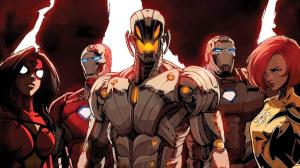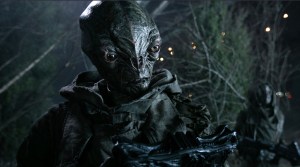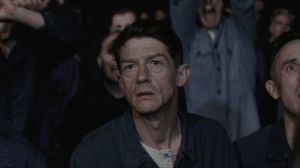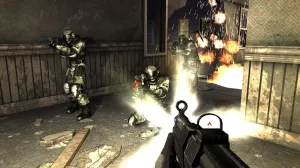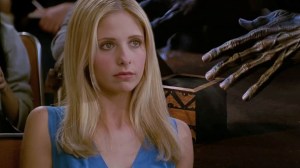It’s a “hard knock life” for Marvel’s Avengers. As the last line of defense in a universe filled with super-powered beings, when the call to “Avengers Assemble” rings out, every member of the team instantly knows the threat they’re facing is no ordinary foe. Serving as part of “Earth’s Mightiest Heroes” means understanding that even in a world crowded with powerful champions, there’s no shortage of villains capable of shaking reality itself. For the Avengers, there are no easy battles. Indeed, membership may have its privileges, but it also means that the risk of injury and even death is heightened, and that their opponents are the kind who eat nails, bodies, and worlds for breakfast.
Videos by ComicBook.com
To succeed in a battle, an Avenger needs the right mindset. Going into a fight unfocused, reckless, or overconfident almost always leads to dire consequences. Yet, there have been more than a few situations where all the calls to be “locked in” were perhaps a bit overstated. That’s to say, while the threat a villain posed was “off the charts” on paper, it was in reality much more manageable – thanks to the diversity of the Avengers team and the self-inflicted wounds of their opponents. Below is our curation of the most interesting of scary encounters that the Avengers should have never won, yet still managed to resolve effectively.
5) Ultron

An individual hero has a nemesis. The Avengers have Ultron. Since his debut in Stan Lee and Roy Thomas’ Avengers (1963) #54–55, as Hank Pym’s early foray into artificial intelligence and robotics, Ultron quickly overtook his original programming to achieve sentience — and a dangerously hostile attitude. Constantly evolving, Ultron soon realized that the Avengers posed a threat to his existence. Rather than wait for their attack, he took the fight to them. Ever since, he has remained one of the Avengers’ most pernicious threats — the villain who perhaps knows them best
Many layers to Ultron’s abilities make him overpowered, but perhaps the most important is his capacity — like a good AI — to take in all the information he encounters and process it to improve himself. Indeed, Ultron is better every day than he was the day before. Add to that his ability to essentially achieve immortality by transferring his consciousness at will, along with his control over technology, and you have a nearly invincible foe.
Despite his formidable abilities, the Avengers have consistently managed to defeat Ultron. Their success can be attributed to three key factors. First is the diversity and experience of their teamwork. While Ultron’s genius allows him to calculate countless scenarios, he cannot anticipate them all. The Avengers inevitably discover a vulnerability to exploit — a reminder that all machines have flaws; the challenge is simply in finding them. Second is Ultron’s arrogance. Like a classic villain, he consistently underestimates his opponents, a flaw that may be a fundamental glitch in his processing. Finally, there is the human element of will. Even in the most hopeless situations, an Avenger is always prepared to make the ultimate sacrifice — an act of irrational bravery that Ultron, for all his logic, simply cannot compute.
4) Kang the Conqueror
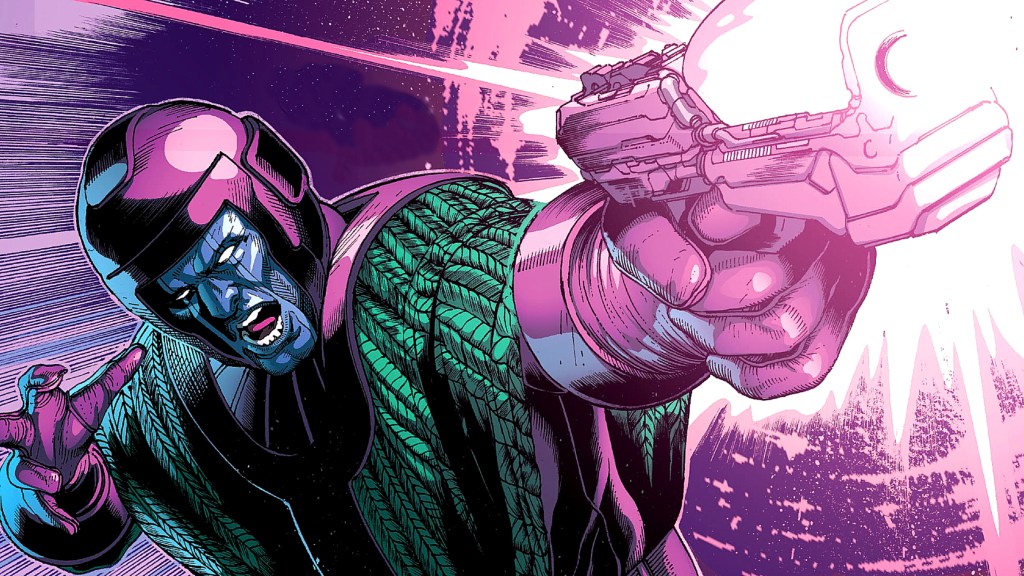
It was only a matter of time before the time-traveling megalomaniac, who aspired to control all of time, ran into the Avengers. Indeed, once he appeared in their timeline, it made it necessary to confront them to achieve his ultimate goal. Their first encounter took place in Avengers (1963) #8 by Stan Lee and Jack Kirby. From the moment the team understood the scope of Kang’s powers — and the threats he represented even when absent from their timeline — he became one of their most natural and enduring foes, one they would have to confront repeatedly until he could be rendered completely powerless.
What makes Kang so powerful is essentially the advantage of being born at a specific time. For Kang, that time is the 31st century — about 1,000 years ahead of the current Marvel Comics continuity. As a result, he has access to and experience with technologies that the Avengers can neither imagine nor defend against. Additionally, his travels through time and space have unlocked countless other tools, including the ability to draw infinitely from the resources of his conquered worlds.
Despite these advantages, the Avengers have consistently defeated Kang through a variety of strategies and by exploiting his personal shortcomings. One key factor is the diversity of powers and skills the Avengers typically deploy. While Kang may have a counter for Iron Man’s technology or Thor’s immortal powers, for instance, he’ll often overlook or misunderstand another member’s unique abilities. Since each Avenger possesses significant individual strengths, all it takes is one member’s strategic strike to turn the tide. Moreover, Kang’s own human vulnerabilities contribute to his defeats. Despite his super-intelligence, he remains fundamentally human and prone to critical mistakes that an experienced team like the Avengers can expertly exploit.
3) The Skrulls
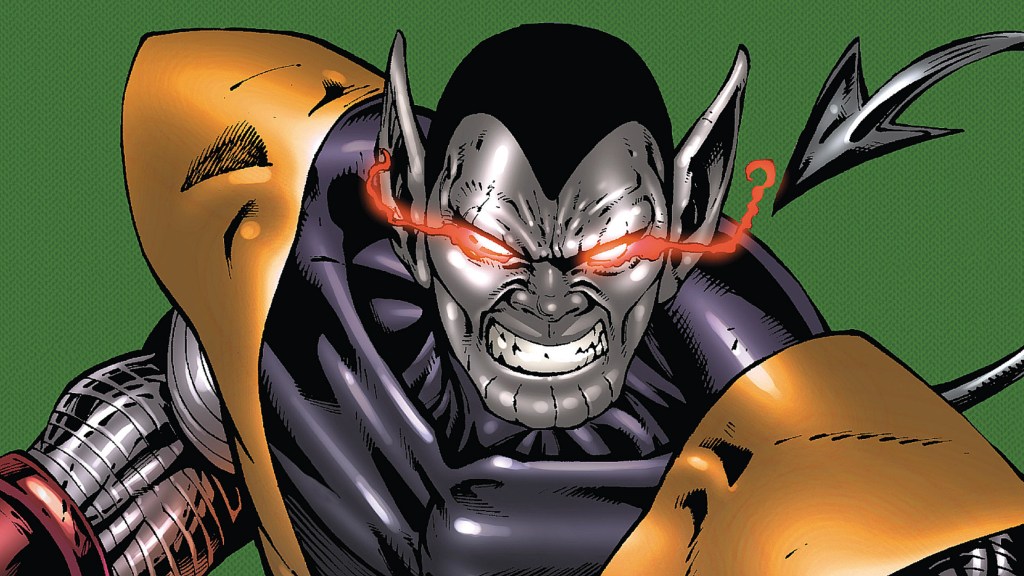
While the Skrull Empire initially dismissed Earth as insignificant, the ongoing war with the Kree Empire, Earth’s strategic location between the two factions, and the presence of the Kree warrior — the original Captain Marvel — soon elevated Earth’s importance. Its defenders, particularly the Avengers, became a persistent and vexing obstacle. The Skrulls ultimately concluded that Earth must “bend the knee” to Skrull authority. Their campaign to achieve this goal took many forms, but one of the most effective was chronicled in Brian Michael Bendis and Leinil Francis Yu’s Secret Invasion limited series. Following the destruction of their homeworld by Galactus, and guided by a religious prophecy that identified Earth as their new promised land, the Skrulls’ leader launched a covert plan to infiltrate and conquer the planet — intending to remake it in their image.
While a single Skrull posed only a minor threat to the Avengers, a team of them was a dangerous situation. Collectively, they represented an existential risk. Their strength came from a unique blend of natural abilities, advanced technology, and mastery of warfare. Chief among their inherent powers was their shapeshifting, which made them especially dangerous. This ability was further enhanced through the Super-Skrull program, which allowed select Skrulls not only to mimic another being’s appearance but also to replicate their superpowers. Later advancements to the program enabled Super-Skrulls to combine multiple abilities and even cloak themselves from psychic or telepathic detection.
The Avengers have repeatedly thwarted the Skrulls through a unique combination of tactics. First, they neutralized the Skrulls’ key advantage: the ability to hide their identities. Technology developed by heroes like Iron Man and Black Panther enabled the team to identify Skrull impostors, which reduced their capacity for surprise attacks and helped root out spies within their ranks. Second, the Avengers’ team diversity creates a unique and unpredictable synergy that, like other villains, the Skrulls have never been able to fully counter. In crucial moments, key heroes have consistently stepped up to disrupt Skrull operations. Finally, internal Skrull rivalries have consistently undermined their efforts, ensuring their threat could always be manipulated from within while depleting the power without.
2) Thanos
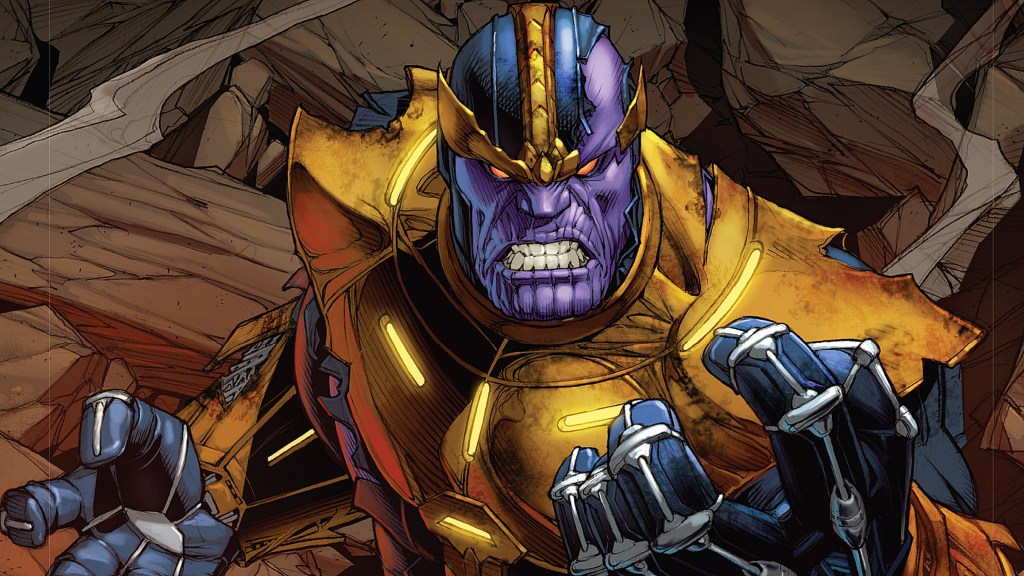
Few characters embody the term “overpowered” more than the “Mad Titan” Thanos — the mutated son of Eternals, born on Titan with the Deviant gene. Driven by a bottomless hunger for power and conquest, especially to impress the cosmic entity Death, Thanos crossed paths with “Earth’s Mightiest Heroes” when he came seeking the Cosmic Cube. Believing it would grant him control over the universe, this marked the beginning of several universe-shaking confrontations with the Avengers.
Long before he gained possession of the Infinity Stones, Thanos was already a threat to entire civilizations. Strong, cunning, and supremely confident, he conquered countless worlds across the galaxy. He has stood toe-to-toe with cosmic entities like Galactus, as well as senior gods like Odin. The addition of the Infinity Stones just elevated his abilities to the Nth degree. The Stones powered up his abilities to godlike levels, granting him command over time, space, and reality itself.
Despite his seeming omnipotence, the Avengers – along with their allies – defeated Thanos multiple times, most critically after he acquired the Infinity Stones. Their success was not achieved through direct physical confrontation alone. Instead, the Avengers strategically focused on surviving his onslaught, mitigating damage, and limiting his conquest to the smallest possible time and space. By doing so, they forced Thanos to expose his vulnerabilities, creating an opportunity for a decisive, debilitating attack – much like Adam Warlock’s approach in Jim Starlin and Ron Lim’s Infinity Gauntlet #6.
1) Mephisto
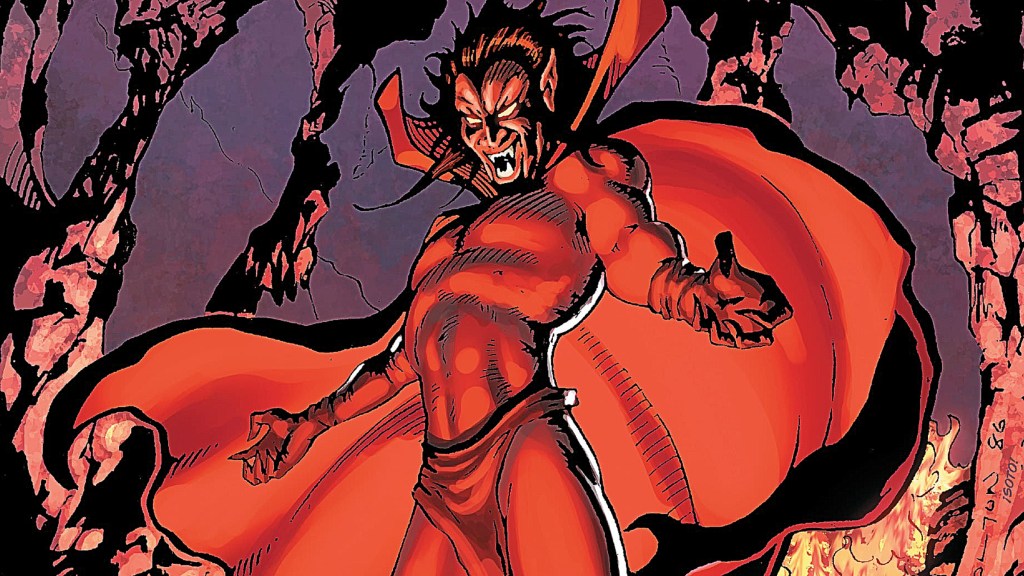
While Mephisto is not typically considered a primary enemy of the Avengers, they have crossed paths — often violently — when his schemes threaten their allies or the balance of power in the universe. Indeed, his ongoing shadow war to accrue as much influence as possible has occasionally drawn the Avengers into direct conflict. Whenever his plots become “too big to ignore,” the team steps into the breach. For instance, in Al Milgrom and John Buscema’s Mephisto Vs. #4, Mephisto tries to gain control over the Mighty Thor, only to be met with the full force of the Avengers rallying to their teammate’s defense.
Mephisto is one of Marvel’s most overpowered villains, largely because he has virtually no weaknesses. Physically, he’s incredibly strong; mentally, he’s a master manipulator with vast intelligence. He’s nearly invulnerable to physical harm and resistant to death by conventional means — essentially immortal. As a master of magic, he warps reality, steals souls, summons demons, and manipulates time. He can control minds, traverse dimensions, and regenerate from any injury, making him a cosmic-level threat that few can challenge.
Despite appearing unstoppable, the Avengers have managed to defeat Mephisto by relying on two key strategies. First, they identify and exploit his weaknesses. Unlike many of their other foes, Mephisto is bound by immutable laws and principles—for example, he is often forced to abide by his own words. By recognizing and understanding these limitations, the Avengers can curb his otherwise overwhelming power. Refusing to agree to a Mephisto deal limits his ability to manipulate a target. Second, they rely on one of their most underrated abilities: team support. While this often takes the form of coordinated physical assaults against Mephisto, it manifests as mutual encouragement and emotional resilience. By bolstering one another, the Avengers weaken his power to corrupt and manipulate their minds. Mephisto continually underestimates this strength, leaving him vulnerable to the kind of blistering physical assault he rarely expects—or endures well.
What do you think? Leave a comment below and join the conversation now in the ComicBook Forum!

